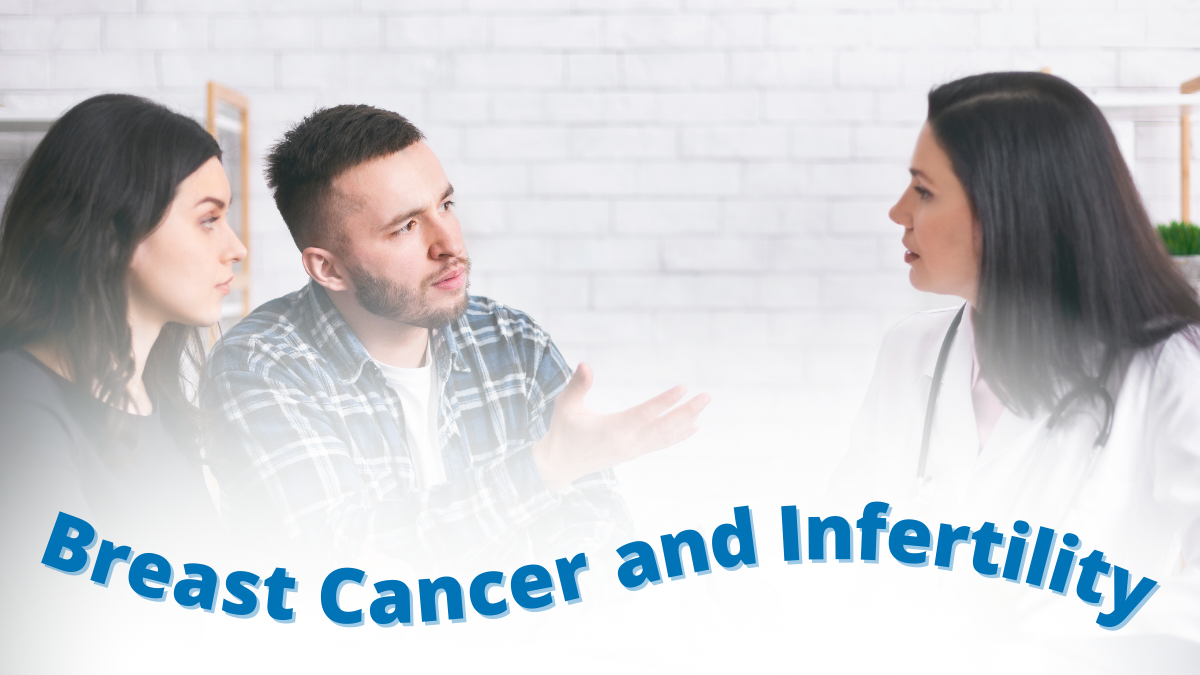
- Blog /
- April 20, 2022
Breast Cancer and Infertility
The majority of breast cancer diagnoses in the U.S. occur in older women, with only about 4 percent falling in women under 40. A breast cancer diagnosis is exceptionally shocking in a phase where life is typically centered around family and career – all of a sudden it is recovery and survivorship that take top priority.
Women who give birth to their first child at age 35 or younger tend to have a decreased risk of breast cancer, although the risk is increased for about 10 years after a first birth. After that, women who give birth tend to have a lower risk of breast cancer than women who never give birth.
Chemotherapy and Tamoxifen
Chemotherapy can cause infertility in pre-menopausal women as it can reduce the number and quality of eggs. Loss of mensturation may be permanent, although some chemotherapy combinations are less likely result to amenorrhea than others. Factors that affect the likelihood of having fertility problems in the future depend on the type of drugs used, the dose given, the patient’s age, and potential prior fertility issues. The chemotherapy drugs most likely to affect fertility are a group called “alkylating agents”. One of these (cyclophosphamide) is commonly used in combination with other chemotherapy drugs to treat breast cancer.
With tamoxifen, menstruation may return after treatment ends, although cycles may be irregular. It is important to know that even in women whose menstrual periods return, treatment can shorten the window of time to have children. Because of the danger of birth defects, women should not become pregnant while taking tamoxifen. Tamoxifen is taken for 5-10 years and during this time, natural fertility may decline.
Preserving Fertility
Thankfully, patients are usually able to take time to consider options for preserving fertility before starting treatment. The most common way to preserve fertility is to store eggs, fertilized or unfertilized, before chemotherapy begins. In both procedures eggs are collected, frozen, and stored. The eggs may be fertilized by sperm from a spouse, partner or donor. Unfertilized eggs may also be stored without a donor. After treatment, the eggs can be thawed and implanted into the uterus.
Drugs like goserelin (Zoladex), leuprolide (Lupron), and triptorelin can shut down the ovaries during chemotherapy. Studies have shown these drugs may protect the ovaries from damage during chemotherapy, lower the chances of early menopause and help preserve fertility.
In preserving fertility, meeting with a fertility specialist as early as possible (before treatment) offers the widest range of options. Whether preserving fertility is a priority or not, a choice so personal deserves room for intent. While breast cancer can bring about significant obstacles, it does not have the final say.
Sources:
BreastCancerNow.org / Fertility and Breast Cancer Treatment
Komen.org / Unique Issues for Young Women with Breast Cancer
https://www.komen.org/breast-cancer/treatment/by-diagnosis/young-women-and-breast-cancer/#fertility
